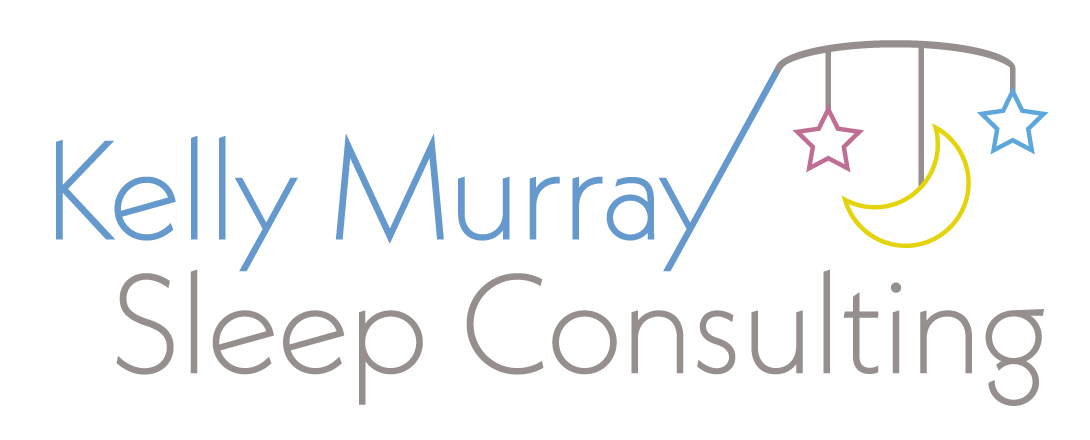Sleep Milestones in Your Baby’s First Year: A Friendly Guide from a Mom and Sleep Consultant
By: Jade LiManni, Master Sleep Consultant
As a mother and pediatric sleep consultant, I know firsthand how overwhelming the world of baby sleep can be. In those early months, it often feels like we’re on a never-ending rollercoaster of sleepless nights and sleepy days. You are often left thinking,
“Will I ever sleep again?”
But don’t worry! I’m here to guide you through the sleep milestones you can expect during your baby’s first year and yes, you can absolutely get the rest you need to recharge. Let’s dive in!
Let's dive into what you can expect during your baby's first year and how to smoothly handle sleep regressions.
The Newborn Stage: 0-3 Months
What to Expect
Newborns are truly little bundles of joy — and sometimes, bundles of wakefulness! In this stage, your baby will sleep a lot, usually between 14-17 hours a day, but don’t expect it to be in long stretches. Most of their sleep will come in short bursts of 2-4 hours, often dictated by their need to feed. In fact, it’s totally normal to see sleep stretches for naps and overnight ranging anywhere from 30 minutes to 3 hours!
TIPS FOR PARENTS
Embrace the Chaos: It’s normal for your baby to wake frequently. Try to enjoy the newborn snuggles, know that the newborn “witching hour” will pass, and get help from friends and family to give you a moment to take a nap.
Create a Sleep-Friendly Environment: Keep the room that baby is sleeping in at night (whether that be nursery or room-sharing) dark and quiet to help signal to your baby that it’s time to sleep. Minimal talking and light exposure during the overnight wakings and feeds to help establish your baby’s circadian rhythm and stop the day/night confusion.
The 4 Month Sleep Regression
WHAT TO EXPECT
Around the 4-month mark, many parents experience what is known as “the 4 month sleep regression” as babies transition from a newborn sleep pattern to a more adult-like cycle. This is when your child can handle sleep training if desired and master the skill the independent sleep! Without the skill of independent sleep, your child may start to wake up much more frequently than before, as they need assistance getting back to sleep at the beginning of each sleep cycle.
They should be taking about 4 naps a day totaling 3-4 hours with overnight sleep totaling between 10-12 hours.
TIPS FOR PARENTS
Stay Consistent: Establishing a consistent bedtime routine can work wonders to help indicate to your child that it’s time for bed. Even simple activities like a warm bath, a gentle massage, or reading a short book can signal that it’s time to wind down.
Feeding: It can be normal for most babies at this stage to still have 0-2 feedings overnight. You can still sleep train and establish independent sleep, while also maintaining night feed(s) if desired or deemed appropriate by your pediatrician.
This post on Surviving the Infamous 4 Month Sleep Regression will help! →
The 5-6 Month Mark
What to Expect
Around 5 to 6 months, many babies start to have a bit more consistency with their sleep schedules. Their naps can also become more predictable, usually settling into a morning nap, mid-day, and a cat nap in the evening.
TIPS FOR PARENTS
Encourage Self-Soothing: If you haven’t already, now can be a great time to drop the pacifier. It is easier to do before object permanence sets in a few months down the road.
Stay Flexible: While routines are helpful, be prepared for occasional disruptions, whether it’s teething or illness. Baby sleep is not perfect — they are humans, not robots. However, if you have established healthy habits, you should be able to bounce back from those minor setbacks rather quickly!
The 7-9 Month Milestone
WHAT TO EXPECT
This is a fun stage where babies often become more mobile! With crawling or even standing, your baby might start to experiment with their newfound skills, which can sometimes lead to bedtime issues or night-time wake-ups. Any time there is a large development in their physical or cognitive abilities, it may be hard for them to turn that excitement off in their brains for the first few days. If no new habits are formed during this time, the newfound excitement should wear off soon! By this point they are on a two nap schedule, with one nap in the morning and one in the afternoon totaling 2-3 hours between them. Also, unless deemed medically necessary, babies should be sleeping through the night without feeding.
Tips for Parents
Create a Safe Sleep Space: As your baby becomes more mobile, ensure their crib is a safe space free from loose bedding and toys and your baby’s crib mattress is on the lowest setting if it is adjustable.
Limit Overstimulation: Ensure they have a calm wind-down time before bed, as too much excitement can interfere with sleep.
Babies transition to 2 naps around this time, so use this guide to make the 3 to 2 nap switch →
The 10-12 Month Mark
What to Expect
By the end of their first year, many babies will have experienced a few bumps in the road in their sleep from regressions, sickness, and teething problems. You may think your child is ready to drop to 1 nap during this period but hold on! In general, most babies are not ready to drop to 1 nap until 14-15 months. You can help maximize your child’s schedule as they approach 1 year by making each nap an hour and potentially pushing bedtime later by 30-60 minutes.
When you’re ready to start transitioning to the one nap schedule, use this guide →
Tips for Parents
Celebrate Their Progress: When your little one starts standing, help them celebrate and practice this skill during the waking hours. It can be helpful to play a “mimic” game with your child to show them how to get down from a standing position. Then allow them some space and patience at bedtime to use that skillset.
Watch for Changes: As your baby approaches their first birthday, you might find their sleep patterns change again. Just remember, it’s all part of the journey!
Final Thoughts
Every baby is unique, and while these milestones can serve as a general guide, it’s essential to be responsive to your child’s individual needs. Sleep training methods are a personal choice, so do what feels right for you and your family. Remember, you’re not alone in this journey! Trust your instincts, reach out for support, and savor those precious snuggles.
Here’s to happy, restful nights ahead — because we all deserve a little sleep! If you have any questions or need personalized advice, please reach out. We would love to help you navigate your child’s sleep. Happy parenting!
LET’S GET YOU TUCKED IN
Experiencing a sleep regression can be challenging, especially if it's led to new sleep habits like feeding, rocking, or staying in the room to soothe your little one to sleep. If you're struggling to move past these associations, we're here to assist. Reach out to us for support. Book a free 15-minute discovery call with us →
Sweet Dreams
Kelly Murray is a certified sleep coach and an award-winning pediatric sleep consultant based in Chicago offering sleep coaching services nationwide.















